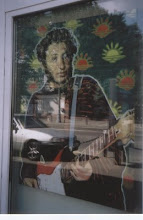Two Hares and a Priest
Patricia Beer
- Pushkin by Elizabeth Feinstein
Weidenfeld, 309 pp, £20.00, October 1998, ISBN 0 297 81826 0
‘Who do you think will close the door after you? Pushkin?’ The question, which Elaine Feinstein quotes in her introduction to this excellent biography, is one which apparently might still be asked by a Russian mother of a careless child. No British mother would say anything like it, if only because she could not think of a figure with comparable evocative power: writers here are hardly household names. She would certainly not use that of the greatest Russian of them all. Some of us call our cats Pushkin but that is about as far as it has gone.
Our shortcomings as readers seem not to be entirely our fault. Feinstein makes it clear that there was a dearth of accessible books in Britain about Pushkin at the time she started to write hers; the classic biographies were out of print and seldom to be found on the shelves of public libraries although some might well lurk in the stacks. In a good working bibliography she lists what is available in the rest of the world. A considerable proportion comes from the USA, and the rest, largely and predictably, from the scholars of Moscow and St Petersburg.
In a substantial note to the introduction Feinstein recommends, though with reservations, books which would instruct us, if we could get hold of them – or if they were translated into English. One piece of guidance given in a book she recommends has important implications: in his biography, Pushkin: The Man and His Age (1994), Robin Edmonds strong-mindedly refrains from even attempting to introduce Pushkin’s poetry to readers who have no Russian, and helpfully fobs us off with the diplomatic and historical background of Pushkin’s life. Feinstein also mentions David Magarshack’s biography respectfully for what was at the time – 1967 – its up-to-date research but reprovingly for its lack of notes and references. (In fact notes do often appear in Magarshack’s book, as parentheses in the text, and there is an efficient index.)
One other reference Feinstein makes leads to questions of style. In 1950 there appeared an English translation of Henri Troyat’s Pouchkine, which, though commendable in some ways, is, she tells us, ‘written like a popular novel with freely invented dialogue’. And it was most probably not only the dialogue that was invented: Pouchkine is clearly the product of the ever-popular school of biography immortalised by one author’s comment in a Life of St Teresa of Avila that ‘St John of the Cross bit his lip.’ If Feinstein has ever come under the influence of this school, which I doubt, she has long since renounced it. When she wishes to give us a telling visual detail she selects, if not from actual documents then from very strong probabilities: when Natalya Goncharova and Pushkin were betrothed she ‘gave him her cold timid hand’. This is more plausible than St John of the Cross biting his lip: a formal betrothal would have involved the extending of hands and made most girls timid, while Moscow in April would have made their hands cold. It is not a banal comment.
The full text of this book review is only available to subscribers of the London Review of Books.


Ei kommentteja:
Lähetä kommentti